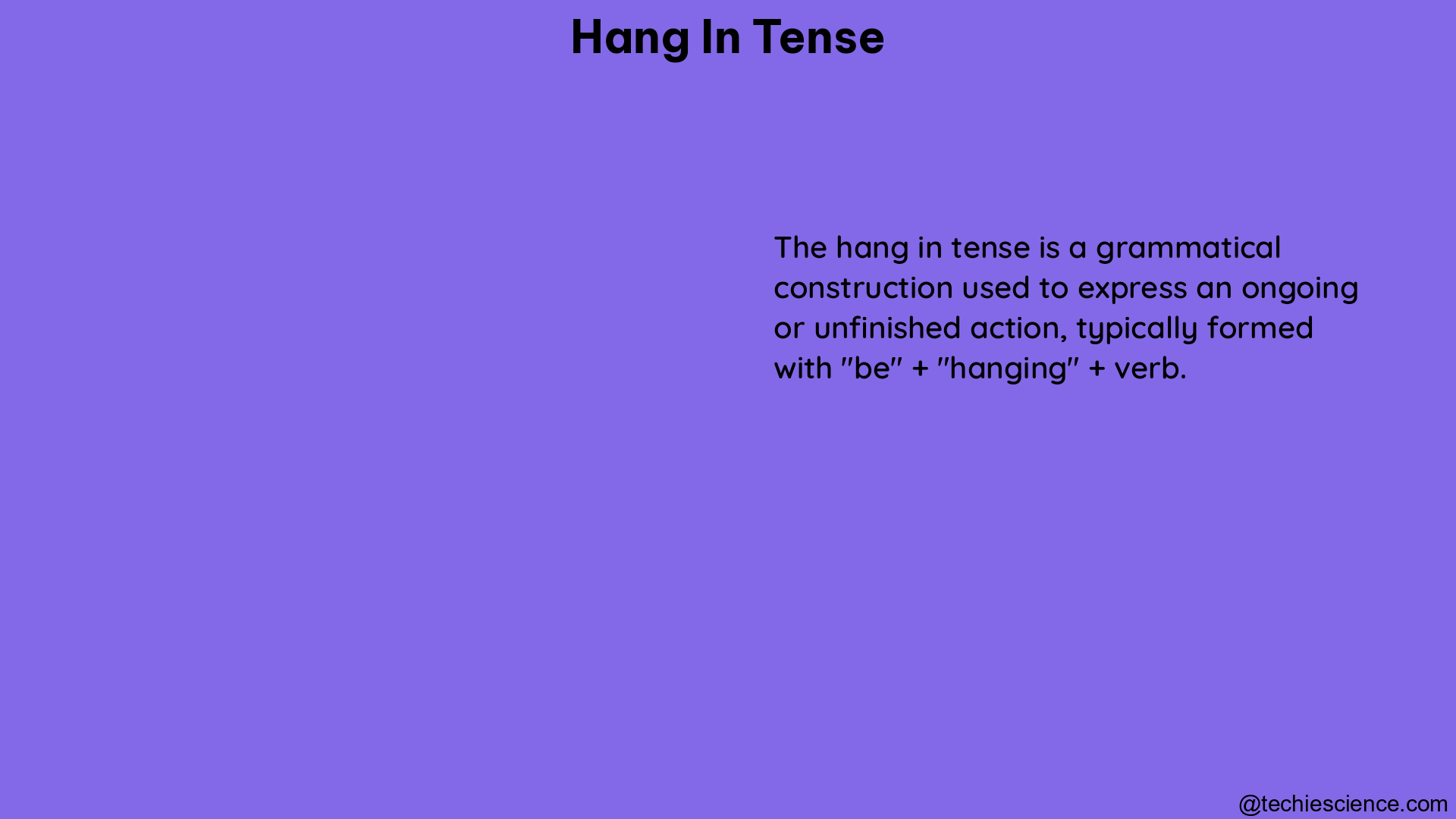The verb “hang” is a versatile word in the English language, with two distinct forms in the past tense and past participle: “hung” and “hanged.” Understanding the proper usage of these forms is crucial for effective communication and writing. This comprehensive guide will delve into the nuances of the hang in tense, providing you with a thorough understanding of when to use “hung” and “hanged,” along with detailed grammatical specifications, theoretical explanations, and practical examples.
“Hung” in Tense
General Usage
The standard past tense and past participle form of “hang” is “hung” when the verb is used to mean “to suspend” or “to be suspended.” This form is applicable in a wide range of contexts, including:
- Decorative Hanging:
- I hung a picture on the wall.
- She hung a wreath on the front door.
-
They hung fairy lights around the patio.
-
Clothing and Textiles:
- The laundry was hung on the clothesline to dry.
- The seamstress hung the curtains in the living room.
-
The coat was hung in the closet.
-
Figurative Usages:
- She hung out with her friends at the mall.
- The team hung in there and won the game in the final seconds.
- The business owner hung up the phone after a long conversation.
In these examples, the use of “hung” is the standard and most common form, as it aligns with the general meaning of the verb “hang.”
“Hanged” in Tense

Execution
The form “hanged” is used specifically when referring to the act of killing someone by hanging. This usage is distinct from the general “hung” form and is reserved for instances where the verb “hang” is used in the context of execution or capital punishment. Examples include:
- Historical Events:
- The Salem “witches” were hanged for their alleged crimes.
-
During the American Civil War, several Confederate soldiers were hanged for desertion.
-
Fictional Narratives:
- Justice Wargrave ordered Edward Seton to be hanged by the neck until dead.
- The outlaw was hanged for his crimes against the town.
In these cases, the use of “hanged” is crucial to convey the specific meaning of execution by hanging, rather than the more general sense of suspension or hanging.
Grammatical Specification
The conjugation of the verb “hang” is irregular, with “hung” being the past tense and past participle for general usage and “hanged” for the context of execution.
| Tense | General Usage | Execution |
|---|---|---|
| Present Tense | I hang | I hang |
| Simple Past Tense | I hung | I hanged |
| Present Participle | I am hanging | I am hanging |
| Past Participle | I have hung | I have hanged |
This grammatical distinction is essential to maintain the proper usage and convey the intended meaning of the verb “hang” in various contexts.
Theoretical Explanation
The distinction between “hung” and “hanged” can be traced back to the historical origins of the verb “hang.” The word has roots in both Old English and Old Norse, with one root leading to the regular verb “hanged,” while the other led to the irregular verb “hung.”
Over time, the irregular form “hung” became the more common usage, particularly in the general sense of suspension or hanging. However, the specific meaning of execution by hanging has retained the “hanged” form, preserving the historical distinction between the two usages.
This linguistic evolution has resulted in the modern-day convention where “hung” is the standard past tense and past participle for most situations, while “hanged” is reserved for the context of execution.
Examples
To further illustrate the proper usage of “hung” and “hanged,” let’s consider the following examples:
General Usage
- I hung the new painting in the living room.
- She hung her coat on the rack before leaving.
- They hung the Christmas lights around the porch.
Execution
- The notorious outlaw was hanged for his crimes against the town.
- During the Salem Witch Trials, several accused “witches” were hanged.
- The judge ordered the convicted murderer to be hanged by the neck until dead.
By understanding the nuances of the hang in tense, you can effectively communicate the intended meaning and avoid any potential confusion or grammatical errors.
Reference:
- https://www.merriam-webster.com/grammar/hung-or-hanged
- https://simple.wiktionary.org/wiki/hang
- https://www.wordreference.com/conj/enverbs.aspx?v=hang

Hi…. I am Goutam Datta. I have completed a double M. A. in English and B. Ed. I am a creative writer. Currently, I am a part of the LambdaGeeks.